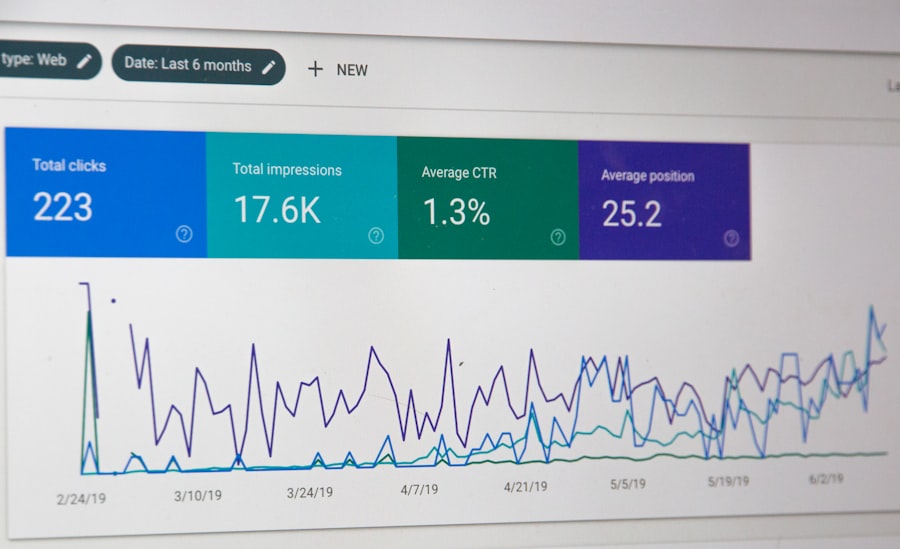Data analytics has emerged as a crucial component in modern business operations, with organizations leveraging data-driven insights to make informed decisions and gain competitive advantages. The proliferation of data analytics can be attributed to several factors, including the exponential growth in data volume generated by businesses, technological advancements facilitating data collection, storage, and analysis, and an increased recognition of the value of data-driven decision-making across industries. The accessibility of sophisticated data analytics tools and platforms has democratized the use of data analytics, enabling businesses of all sizes to harness the power of data for strategic purposes.
This widespread adoption has positioned data analytics as a key driver of business growth and innovation, allowing companies to uncover new opportunities, streamline processes, and enhance overall performance. As the business landscape continues to evolve with the advent of big data and increasingly complex operations, data analytics has become indispensable for organizations seeking to maintain competitiveness and thrive in today’s rapidly changing market environment. The growing importance of data-driven insights has also led to a surge in demand for professionals with expertise in data analytics, further underscoring its significance in the modern business world.
Key Takeaways
- Data analytics is becoming increasingly important in today’s business world, as companies seek to gain insights and make informed decisions based on data.
- Data analytics plays a crucial role in decision making, helping businesses to identify trends, patterns, and opportunities that can drive growth and success.
- A career in data analytics requires a combination of technical skills, such as programming and statistical analysis, as well as strong communication and problem-solving abilities.
- The field of data analytics offers a wide range of job opportunities and potential for career growth, as businesses across various industries continue to invest in data-driven strategies.
- Data analytics has a significant impact on business performance, enabling companies to optimize operations, improve customer experiences, and drive innovation.
The Importance of Data Analytics in Decision Making
The Power of Data Analysis
By analyzing large volumes of data, businesses can identify patterns, trends, and correlations that inform their decision-making process. This enables companies to make more accurate predictions, mitigate risks, and capitalize on opportunities that may have otherwise gone unnoticed.
Gaining a Deeper Understanding
Moreover, data analytics enables businesses to gain a deeper understanding of their customers, market trends, and competitive landscape, which is essential for developing effective strategies and staying ahead of the competition. By leveraging data analytics, businesses can optimize their operations, improve efficiency, and drive innovation, ultimately leading to better business outcomes and increased profitability.
Driving Growth and Success
By analyzing operational data, businesses can identify inefficiencies and bottlenecks in their processes, allowing them to make targeted improvements that can have a significant impact on their bottom line. Overall, data analytics is essential for businesses to make informed decisions that drive growth and success in today’s competitive business environment.
The Skills and Education Required for a Career in Data Analytics

A career in data analytics requires a combination of technical skills, analytical thinking, and domain knowledge. Professionals in this field should have a strong foundation in statistics, mathematics, and computer science, as well as proficiency in programming languages such as Python, R, or SQL. In addition, a deep understanding of data visualization tools and techniques is essential for effectively communicating insights derived from data analysis.
Furthermore, professionals in data analytics should possess strong critical thinking and problem-solving skills, as well as the ability to interpret and analyze complex datasets. A solid understanding of business operations and industry-specific knowledge is also important for effectively applying data analytics to real-world business challenges. In terms of education, a bachelor’s degree in a related field such as computer science, statistics, mathematics, or economics is typically required for entry-level positions in data analytics.
However, many employers also look for candidates with advanced degrees such as a master’s or Ph.D. in data science or a related field. Additionally, obtaining relevant certifications in data analytics or related technologies can help professionals demonstrate their expertise and stand out in the competitive job market.
Job Opportunities and Career Growth in the Field of Data Analytics
The field of data analytics offers a wide range of job opportunities and strong career growth prospects for professionals with the right skills and expertise. As businesses continue to rely on data-driven insights to inform their decision-making process, the demand for skilled data analysts, data scientists, and business intelligence professionals is expected to continue growing. In addition to traditional industries such as finance, healthcare, and retail, data analytics professionals are also in high demand in emerging fields such as artificial intelligence, machine learning, and cybersecurity.
This presents exciting opportunities for professionals to apply their skills in cutting-edge technologies and contribute to innovative solutions that drive business success. Furthermore, the rapid evolution of technology and the increasing volume of data being generated by businesses are expected to create new job roles and career opportunities in the field of data analytics. As businesses continue to invest in data analytics capabilities, professionals with expertise in areas such as predictive analytics, data visualization, and big data management will be highly sought after.
Overall, the field of data analytics offers promising career prospects for professionals who are passionate about leveraging data to drive business success and make a meaningful impact on the organizations they work for.
The Role of Data Analytics in Various Industries
Data analytics plays a critical role in various industries by enabling businesses to gain valuable insights that inform their decision-making process and drive strategic growth. In the finance industry, for example, data analytics is used to detect fraudulent activities, assess credit risk, and optimize investment strategies. By analyzing large volumes of financial data, banks and financial institutions can make more informed decisions that mitigate risks and maximize returns.
In the healthcare industry, data analytics is used to improve patient outcomes, optimize healthcare delivery, and reduce costs. By analyzing patient data and medical records, healthcare providers can identify trends and patterns that inform treatment plans and improve overall patient care. Additionally, data analytics is also used to identify opportunities for operational efficiencies and cost savings within healthcare organizations.
In the retail industry, data analytics is used to understand consumer behavior, optimize pricing strategies, and personalize marketing efforts. By analyzing customer transaction data and demographic information, retailers can gain insights that inform their product offerings and marketing campaigns. This allows retailers to better understand their customers’ preferences and tailor their strategies to drive sales and customer loyalty.
Overall, data analytics plays a crucial role in various industries by enabling businesses to gain valuable insights that inform their decision-making process and drive strategic growth.
The Impact of Data Analytics on Business Performance

Data analytics has a significant impact on business performance by enabling companies to make informed decisions that drive growth, innovation, and profitability. By leveraging data analytics, businesses can gain valuable insights that inform their strategic planning process and help them identify new opportunities for growth. This allows companies to make more accurate predictions and capitalize on emerging trends that can give them a competitive edge in the market.
Furthermore, data analytics enables businesses to optimize their operations and improve efficiency by identifying areas for improvement and making targeted changes that drive cost savings and productivity gains. By analyzing operational data, businesses can identify bottlenecks in their processes and make informed decisions that lead to streamlined operations and improved performance. In addition, data analytics also plays a crucial role in driving innovation within organizations by enabling them to develop new products and services that meet the evolving needs of their customers.
By analyzing customer feedback and market trends, businesses can identify opportunities for innovation that allow them to stay ahead of the competition and maintain their relevance in the market. Overall, data analytics has a significant impact on business performance by enabling companies to make informed decisions that drive growth, innovation, and profitability.
Future Trends and Developments in the Field of Data Analytics
The field of data analytics is constantly evolving, with new trends and developments shaping the future of this dynamic industry. One key trend is the increasing use of artificial intelligence (AI) and machine learning algorithms to analyze large volumes of complex data. These technologies enable businesses to gain deeper insights from their data and make more accurate predictions that inform their decision-making process.
Another important trend is the growing emphasis on ethical considerations in data analytics. As businesses continue to collect and analyze large volumes of customer data, there is a growing need for ethical guidelines and regulations that govern how this data is used. This trend is expected to shape the future of data analytics by influencing how businesses collect, store, and analyze customer information.
Furthermore, the increasing use of big data technologies such as Hadoop and Spark is expected to continue shaping the future of data analytics by enabling businesses to process and analyze large volumes of unstructured data more efficiently. This trend presents exciting opportunities for professionals with expertise in big data management and analysis. Overall, the future of data analytics is expected to be shaped by advancements in technology such as AI and machine learning, as well as growing emphasis on ethical considerations in data collection and analysis.
These trends are expected to drive innovation within the field of data analytics and create new opportunities for professionals with expertise in this dynamic industry.
If you’re interested in pursuing a career in data analytics, you may also find the article “How to Use Job Boards to Maximize Your Job Search” helpful. This article provides tips and strategies for utilizing job boards effectively to find opportunities in the field of data analytics. It offers valuable insights into the job search process, which can be particularly beneficial for individuals looking to break into this growing career field. Check it out here.
FAQs
What is data analytics?
Data analytics is the process of examining large data sets to uncover hidden patterns, unknown correlations, market trends, customer preferences, and other useful information that can help organizations make more informed business decisions.
What skills are required for a career in data analytics?
Some of the key skills required for a career in data analytics include proficiency in programming languages such as Python or R, knowledge of statistical analysis and data visualization tools, understanding of database management systems, and strong problem-solving and critical thinking abilities.
What are the job prospects for data analysts?
The job prospects for data analysts are very promising, with a high demand for professionals who can interpret and analyze data to help organizations make strategic decisions. Many industries, including finance, healthcare, retail, and technology, are actively seeking data analysts to help them gain insights from their data.
What is the average salary for a data analyst?
According to the U.S. Bureau of Labor Statistics, the median annual wage for data analysts was $94,280 in May 2020. However, salaries can vary based on factors such as experience, education, and the industry in which the data analyst is employed.
What are the educational requirements for a career in data analytics?
While a bachelor’s degree in fields such as computer science, mathematics, statistics, or economics is often required for entry-level positions, many employers prefer candidates with a master’s degree in data analytics, data science, or a related field. Additionally, obtaining certifications in specific data analytics tools and technologies can also enhance job prospects.



